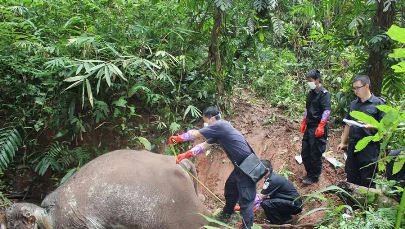The first proposed amendment to China’s wildlife protection law in 26 years has generated heated debate among animal rights activists after it was released to solicit public opinions last week, the Global Times reported.
The report said that although most animal rights activists approve of the significance of protecting wild animals, some activists wanted the phrase "developing and utilizing wildlife resources" deleted from the draft to prevent wildlife from being used for commercial purposes.
The draft amendment was submitted for first reading on Dec. 26 at the bimonthly session of the National People's Congress Standing Committee and includes regulations on punishments for selling, purchasing, utilizing and transporting wild animals that are not nationally protected. The amendment also bans people from performing mercy releases of captive animals.
The Xinhua News Agency reported that under the draft's stipulations, citizens are obliged to protect wildlife and must report any encroachment on or damage to wildlife habitats. It also requires local governments to protect wildlife and habitats with specific measures.
The draft stresses that the use and consumption of products derived from wild animals should be done in accordance with regulations and in the interest of public order and good practice.
Many animal rights activists and experts, however, said that they hoped the term "utilizing wild animals" would be deleted from the draft.
"The draft law still views wild animals as resources, which goes against the worldwide trend," Mang Ping, a professor of environmental ethics at the Central Institute of Socialism, told the Global Times. He said that such terms should be deleted to prevent wild animals from being used for commercial purposes.
Yan Xun, an engineer from the State Forestry Bureau's wildlife protection department, however, argued that the law should be realistic.
"The economic development of some areas relies on wild animals, and we cannot deprive rural residents of the resources which provide them with a living," Yan told news site thepaper.cn.
Yu Fengqin, director of wildlife protection NGO Ark in Green Fields, also proposed punishment for people who buy and eat wild animals.
Yu added that all wild animals should be protected by the law, not only species that are rare or near extinction, or species which have an important economic or scientific value.
"Every wild animal has its ecological function. Poor protection of them may endanger other key wild animals and break the ecological balance," Yu said.



























